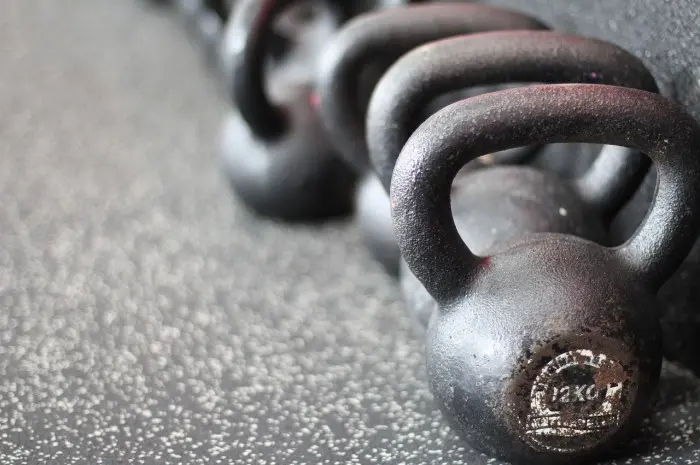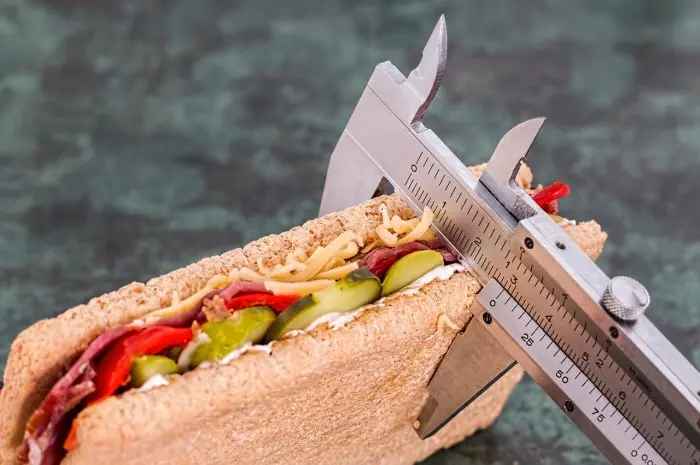Discover the tips for weight loss that actually work, a comprehensive guide offering practical, scientifically-backed strategies for effective weight loss.
Embarking on a weight loss journey often comes with a mix of excitement and uncertainty. With so much information available, it can be challenging to discern what advice is truly effective.
This article delves into 10 proven tips for weight loss, emphasizing strategies that are not just fads but have stood the test of time and scientific scrutiny. Our focus is on sustainable, healthy changes that not only promote weight loss but also enhance overall well-being.
10 Tips for Weight Loss That Actually Work
1. Balanced Diet

A cornerstone of effective weight loss is a balanced diet. This means incorporating a variety of foods to ensure you receive essential nutrients. A balanced diet typically includes:
- Fruits and Vegetables: Rich in fiber, vitamins, and minerals, they help fill you up with fewer calories.
- Lean Proteins: Sources like chicken, fish, beans, and tofu provide the building blocks for muscle without excessive calories.
- Whole Grains: Foods like brown rice, whole wheat bread, and oats offer fiber and keep you feeling full longer.
- Healthy Fats: Avocados, nuts, and olive oil provide necessary fats that help in nutrient absorption and satiety.
It’s not just about eating the right foods, but also about avoiding or minimizing the intake of processed foods and high sugar items which can sabotage weight loss efforts.
2. Regular Exercise
Exercise is an indispensable part of any weight loss plan. It helps burn calories, boosts metabolism, and builds muscle, which in turn aids in burning more calories even at rest. The key to successful exercise for weight loss includes:
- Consistency: A regular exercise routine is more effective than sporadic intense workouts.
- Variety: Combining different types of activities like cardio, strength training, and flexibility exercises keeps the routine interesting and works different muscle groups.
- Enjoyment: Choosing activities you enjoy ensures you stick with your exercise plan long-term.
Regular exercise not only contributes to weight loss but also improves heart health, boosts mood, and enhances overall quality of life.
3. Adequate Hydration

Hydration plays a pivotal role in weight loss and overall health. Water is essential for various bodily functions, including metabolism and digestion. Adequately hydrating your body can also help in weight management in several ways:
- Appetite Control: Sometimes, the body confuses thirst with hunger. Drinking water can help curb unnecessary snacking.
- Enhanced Metabolism: Staying hydrated aids in maintaining an optimal metabolic rate, which is crucial for burning calories.
- Removal of Waste: Water helps in flushing out waste and toxins from the body, which is important during weight loss.
Aim for at least 8 glasses of water a day, more if you’re active or live in a hot climate. Remember, hydration doesn’t just come from water; fruits and vegetables high in water content also contribute to your daily intake.
4. Consistent Sleep Patterns
Good sleep is often the unsung hero of weight loss. Consistent, quality sleep has several benefits for those looking to lose weight:
- Hormonal Balance: Lack of sleep can disrupt the balance of hunger hormones, leading to increased appetite and potential weight gain.
- Energy Levels: Adequate sleep ensures you have enough energy for your workouts and daily activities.
- Recovery: Sleep is the time when the body repairs and recovers, especially important if you’re engaging in regular exercise.
Adults should aim for 7-9 hours of sleep per night. Establishing a regular sleep schedule, creating a restful environment, and avoiding stimulants like caffeine close to bedtime can improve sleep quality.
5. Mindful Eating

Mindful eating is about being fully present and aware during meals. It’s a powerful tool for weight loss:
- Awareness of Hunger and Fullness: Paying attention to your body’s cues helps in distinguishing between true hunger and eating out of boredom or emotion.
- Enjoyment and Satisfaction: By focusing on the taste and texture of food, you’re likely to find meals more satisfying, which can prevent overeating.
- Slower Eating: Eating slowly allows your brain time to register fullness, reducing the likelihood of overeating.
To practice mindful eating, start by removing distractions like TV or smartphones during meals. Focus on your food, chew slowly, and listen to your body’s hunger and fullness signals.
6. Avoiding Processed Foods
Processed foods are often high in unhealthy fats, sugars, and calories, which can hinder weight loss efforts:
- High Caloric Density: Processed foods tend to be calorie-dense, providing more calories in smaller volumes.
- Low Nutrient Value: These foods often lack essential nutrients, leading to inadequate nourishment despite high calorie intake.
- Encourages Overeating: The combination of sugar, fat, and salt in processed foods can trigger overeating by stimulating the reward centers in the brain.
Opting for whole, unprocessed foods like fruits, vegetables, whole grains, and lean proteins can make a significant difference in your weight loss journey. They provide essential nutrients and keep you satiated for longer periods.
7. Portion Control

Portion control is a critical aspect of weight management. Eating the right portion sizes ensures you’re consuming the right amount of calories without overeating. Here’s how to master portion control:
- Use Smaller Plates: Smaller plates can trick your brain into thinking you’re eating more than you are, reducing the likelihood of overeating.
- Read Labels: Understanding serving sizes on food labels helps in gauging how much to eat.
- Listen to Your Body: Pay attention to your hunger and fullness cues. Stop eating when you’re comfortably full, not when you’re stuffed.
- Measure Portions: Initially, using measuring cups or a food scale can help you get a sense of appropriate portion sizes.
Portion control doesn’t mean deprivation; it’s about eating enough to feel satisfied while maintaining a calorie deficit for weight loss.
8. Regular Health Check-ups
Regular health check-ups are important in a weight loss journey for several reasons:
- Monitoring Progress: Regular check-ups can help track your progress, including changes in weight, body composition, and vital stats.
- Identifying Potential Issues: Doctors can identify any underlying health issues that might affect your weight loss, such as hormonal imbalances.
- Adjusting Plans: Based on your health status, a healthcare professional can recommend changes to your diet or exercise routine.
Annual check-ups, along with periodic consultations, can ensure your weight loss journey is healthy and effective.
9. Stress Management

Stress can be a significant barrier to weight loss. High-stress levels can lead to emotional eating and make it harder to maintain healthy habits. Here are some ways to manage stress:
- Regular Exercise: Physical activity is a great stress reliever.
- Mindfulness and Meditation: Practices like yoga and meditation can help lower stress levels.
- Adequate Sleep: Ensuring enough sleep can reduce stress.
- Hobbies and Relaxation: Engaging in activities you enjoy can be a great way to de-stress.
Learning to manage stress effectively can prevent it from derailing your weight loss efforts.
10. Seeking Professional Advice
If you’re struggling with weight loss, seeking advice from professionals can be highly beneficial:
- Nutritionists/Dietitians: They can provide personalized dietary advice based on your specific needs and health conditions.
- Personal Trainers: They can tailor an exercise program to your fitness level and goals.
- Therapists or Counselors: If emotional eating is an issue, speaking to a mental health professional can be helpful.
Professional guidance can provide the expertise and support needed to overcome challenges and achieve your weight loss goals.
Incorporating the Tips into Daily Life
Successfully integrating these weight loss tips into your daily routine requires a blend of commitment, adaptability, and patience. Here’s how you can seamlessly incorporate these tips into your lifestyle:
- Start Gradually: Implement one or two tips at a time to avoid feeling overwhelmed.
- Set Realistic Goals: Establish achievable targets to keep you motivated.
- Plan Your Meals and Workouts: Scheduling helps in maintaining consistency.
- Keep a Journal: Track your food intake, exercise, and feelings to monitor progress and identify patterns.
- Seek Support: Share your goals with friends or family for encouragement and accountability.
Remember, small, consistent changes often lead to significant long-term results.
Common Misconceptions about Weight Loss
There are numerous myths surrounding weight loss that can hinder progress:
- Rapid Weight Loss is Sustainable: Quick weight loss is often water loss, not fat loss, and is hard to sustain.
- Extreme Diets are Effective: Drastically cutting calories can slow metabolism and lead to nutrient deficiencies.
- All Calories are Equal: The type of calories (protein, carbs, fats) matters as much as the amount.
- Exercise Alone is Enough: While exercise is crucial, diet and lifestyle changes are also essential for effective weight loss.
- Skipping Meals Aids Weight Loss: Skipping meals can lead to overeating later and slow down metabolism.
Understanding and debunking these myths is vital for a successful weight loss journey.
Conclusion
Weight loss is a journey that involves more than just dieting and exercising. It’s about making sustainable lifestyle changes. This includes eating a balanced diet, exercising regularly, staying hydrated, getting enough sleep, practicing mindful eating, avoiding processed foods, managing portion sizes, keeping up with health check-ups, managing stress, and seeking professional advice when necessary.
By incorporating these tips into your daily life and steering clear of common misconceptions, you can embark on a healthier, more effective weight loss journey. Remember, the key to successful weight loss is persistence, patience, and a positive attitude.








